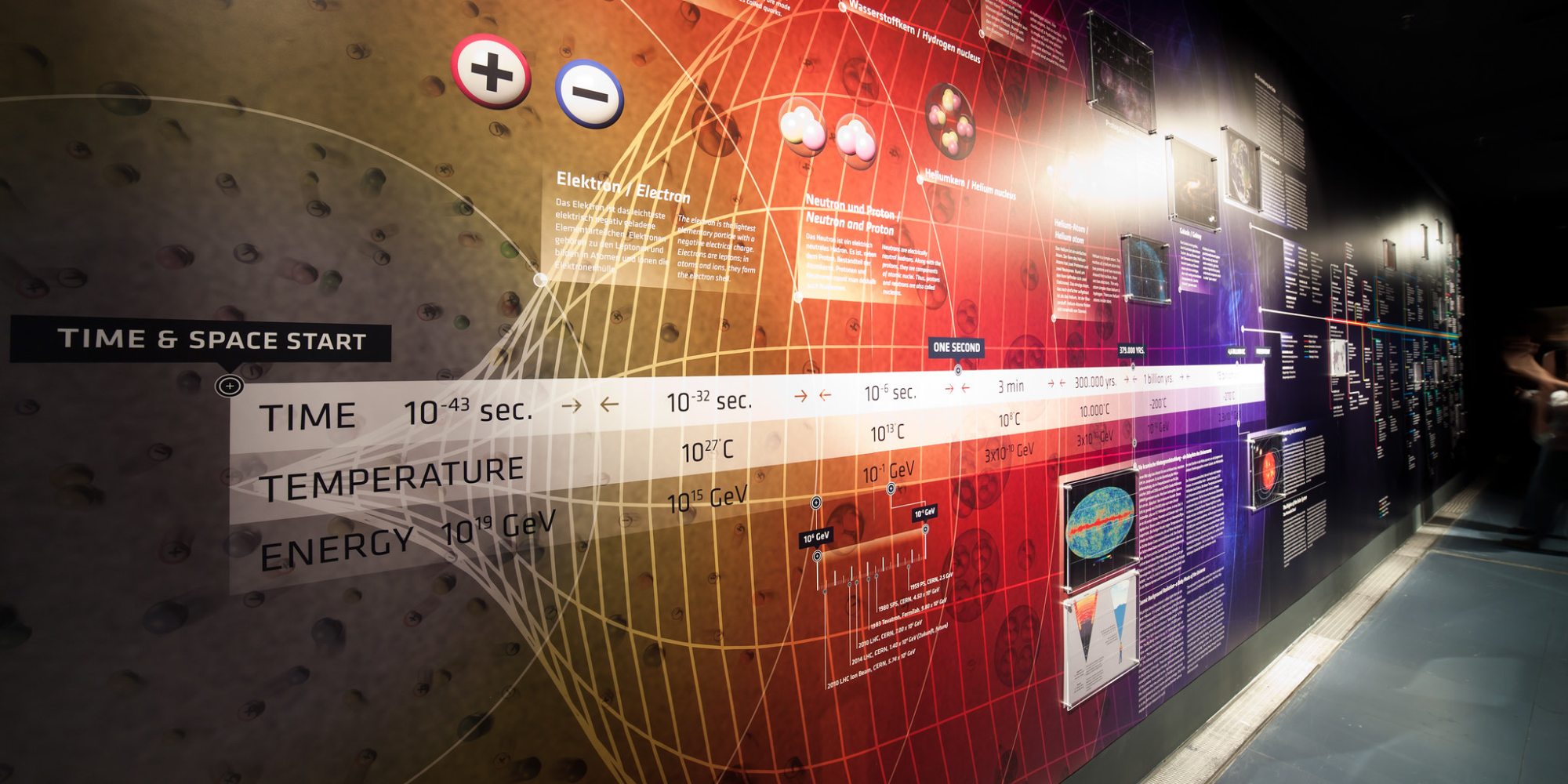
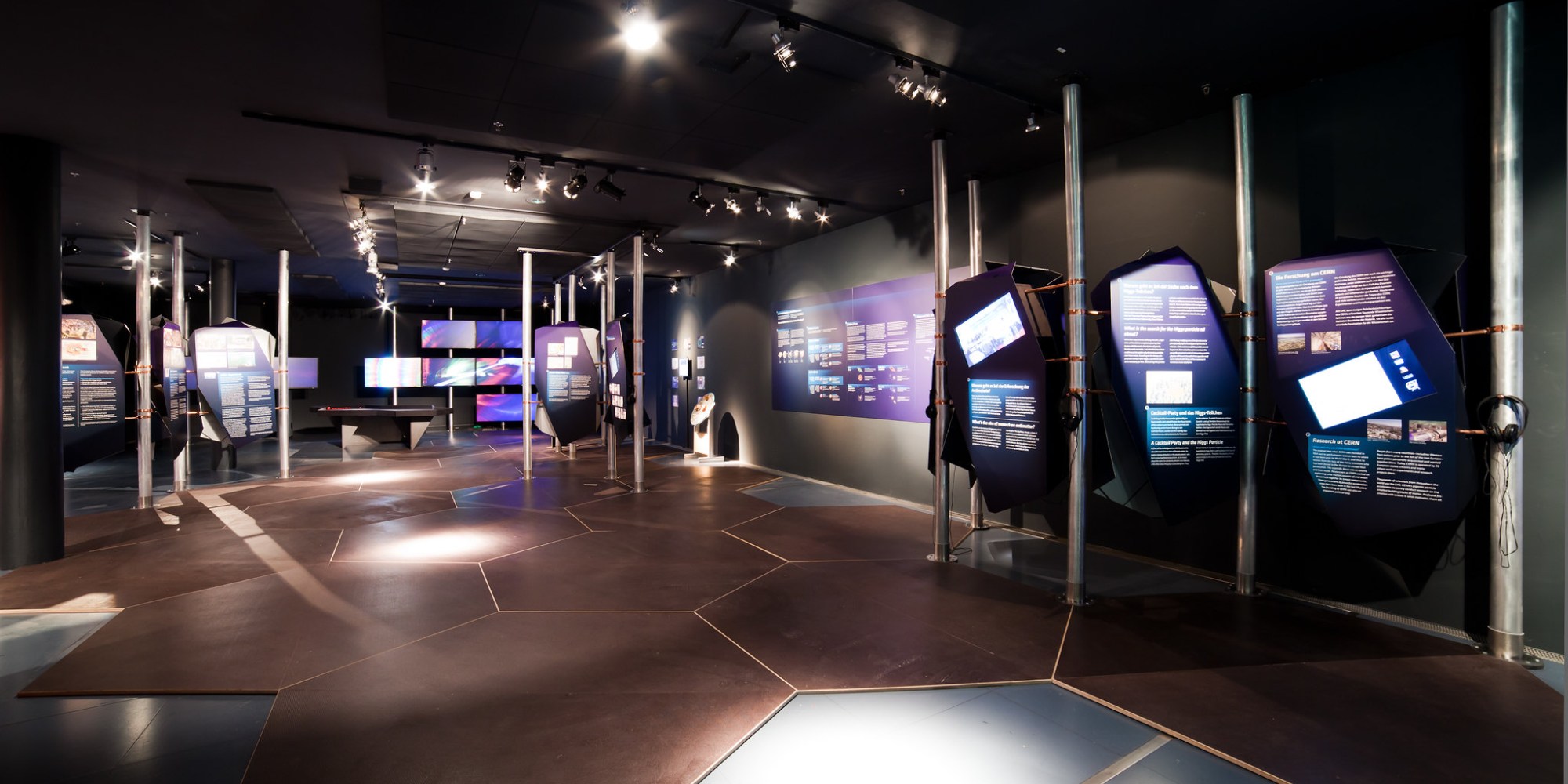
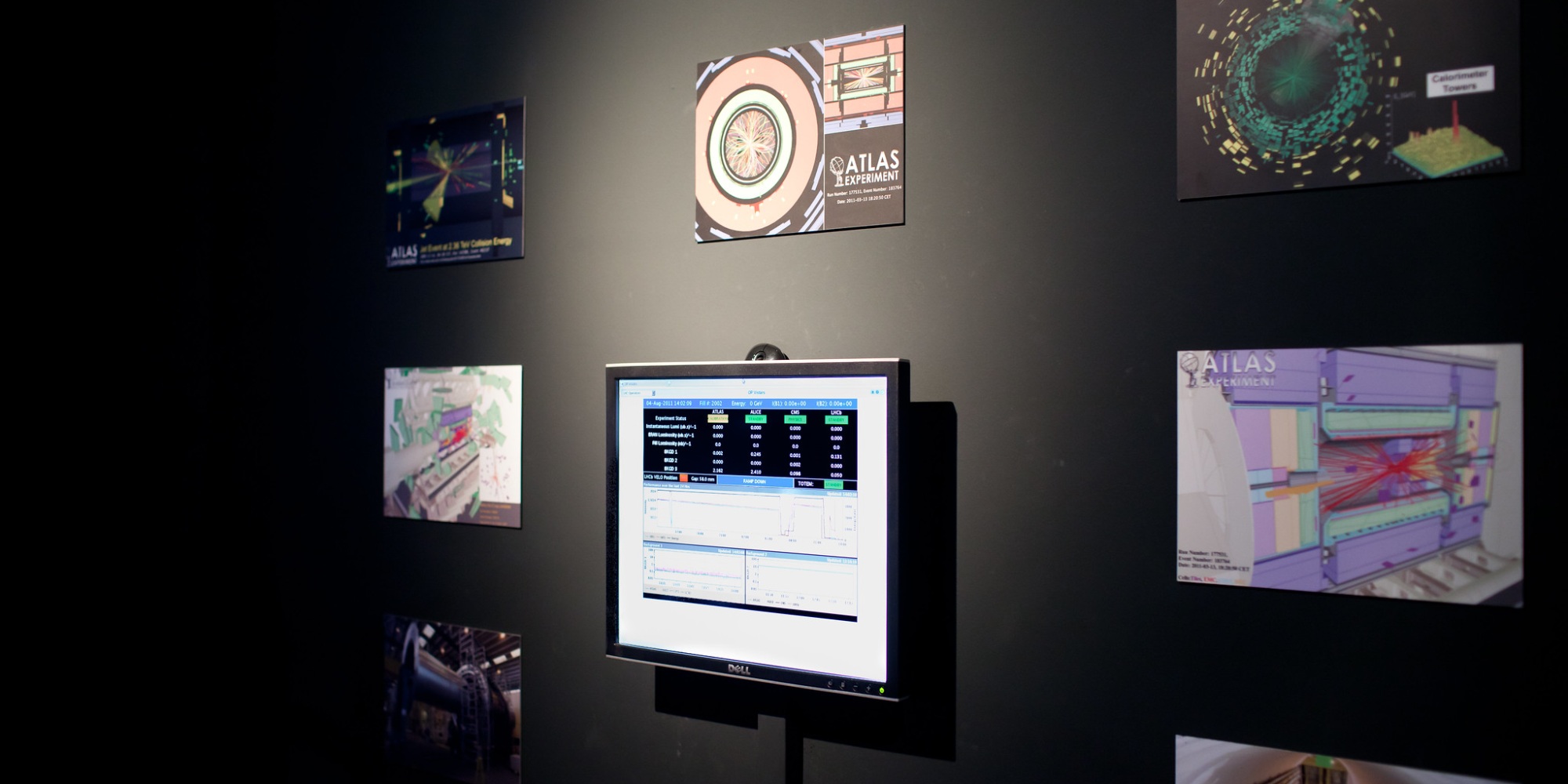
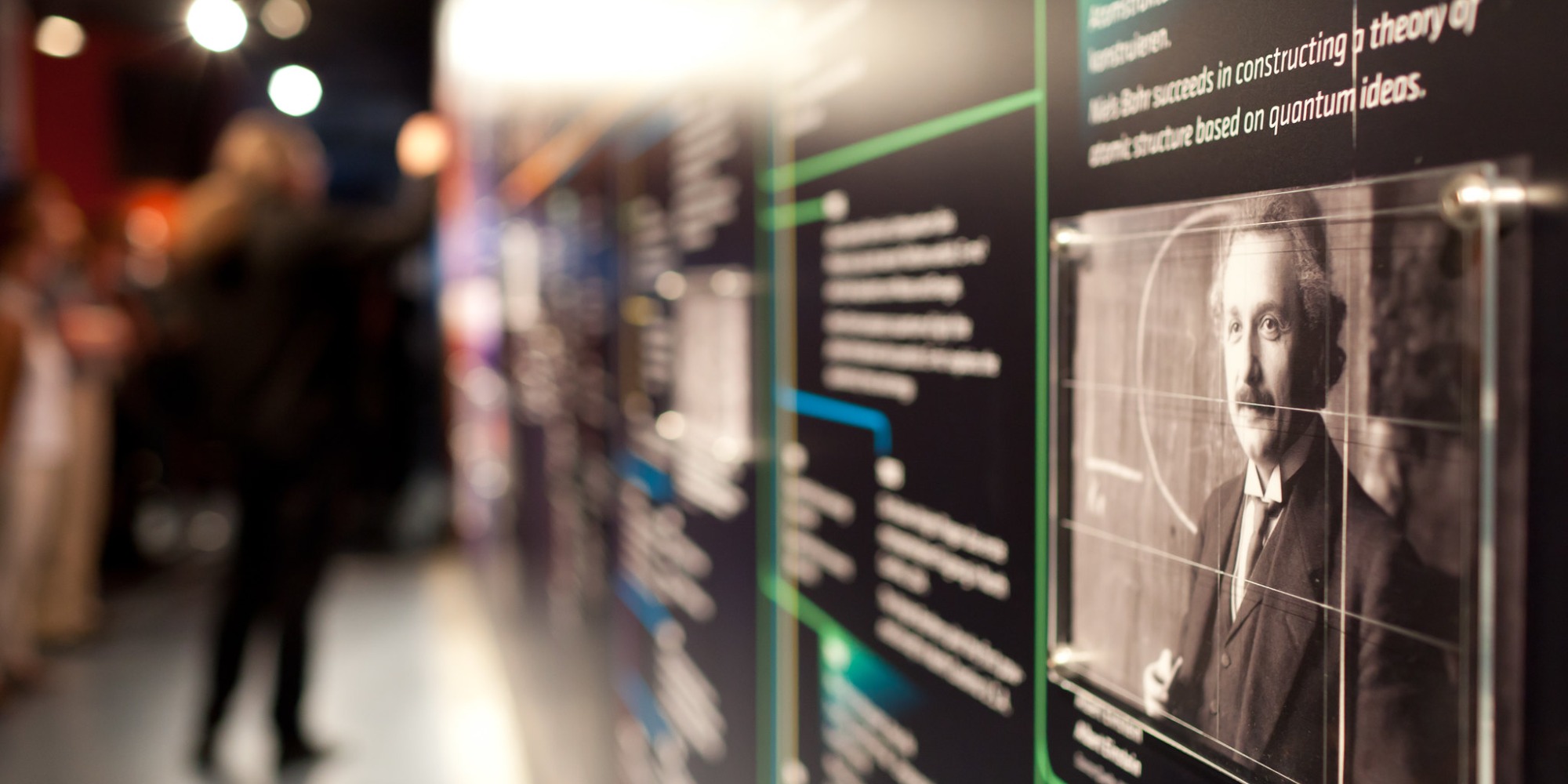
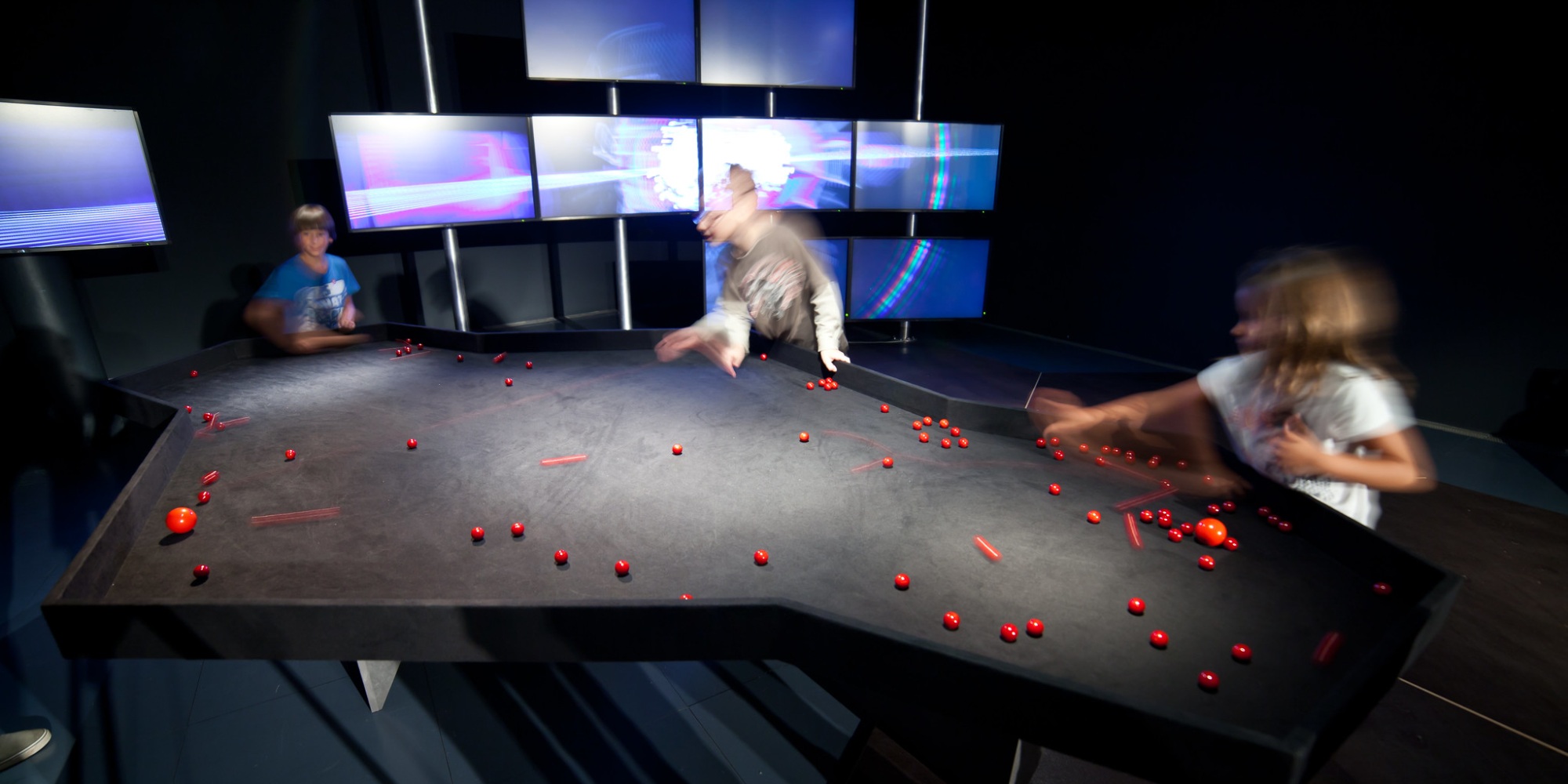
I believe that if we stop doing research, then we’re actually not human beings any more. Then we lack that human curiosity.” Rolf-Dieter Heuer, former General Director of CERN
The search for origins is far more than just basic research. It is what makes us human: the desire to understand and expand the boundaries of our knowledge so that something new can emerge and social dynamism can be developed from it. Research and art are thus no longer merely expressions of the human longing for knowledge, but demonstrate their potential to promote the openness and innovative capacity of a society. Thus, this 2011 exhibition was dedicated to the spectacular and fascinating world of science and research. Pure science”, in other words, which marked a high point in particle physics with CERN (Centre Européen pour la Recherche Nucléaire) and its global science project, the LHC (Large Hadron Collider) – the largest particle accelerator in the world. With 10,000 researchers and employees from 80 countries and an annual budget of 1 billion Swiss francs, CERN is the size of a small city, making it one of the largest research centers in the world. But CERN stands not only for the search for the hypothetical Higgs particle, which would explain mass, but also for achievements such as the World Wide Web, which has such a significant influence on our society. CERN is thus not only a place of new findings in cutting-edge and basic research, it is above all a place of new paradigms and new ideas.
More pictures of over 40 years of Ars Electronica can be found in our archive.
In our Throwback series, we take a look back at past events, exhibitions, installations and other exciting happenings from the Ars Electronica universe since 1979.